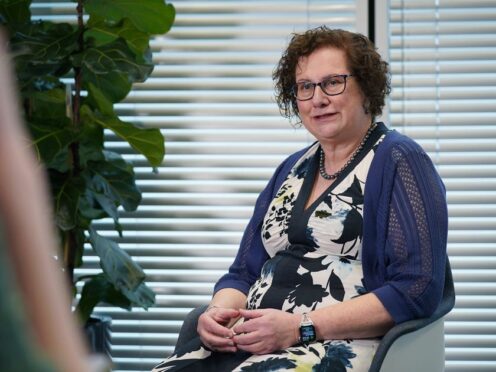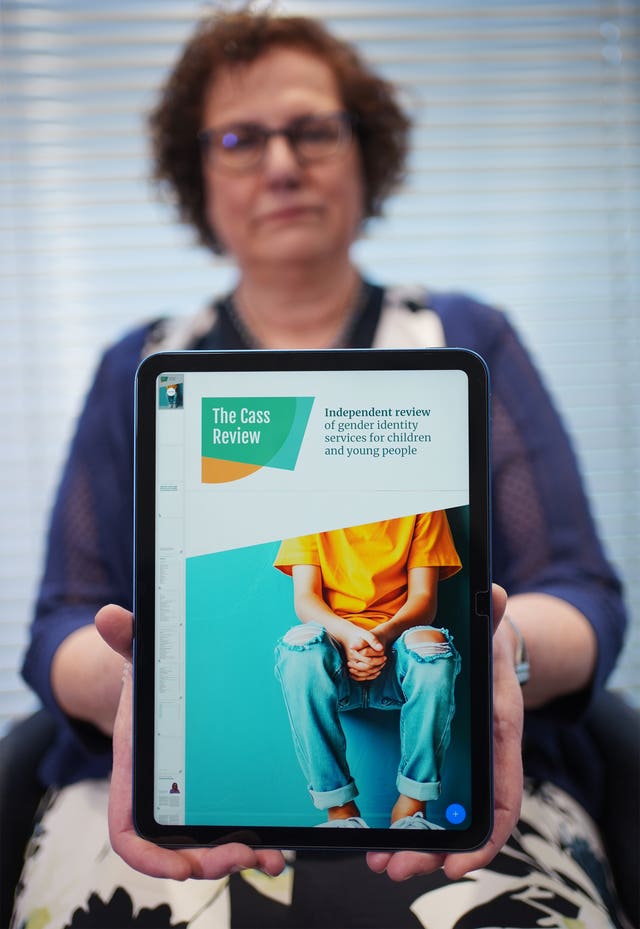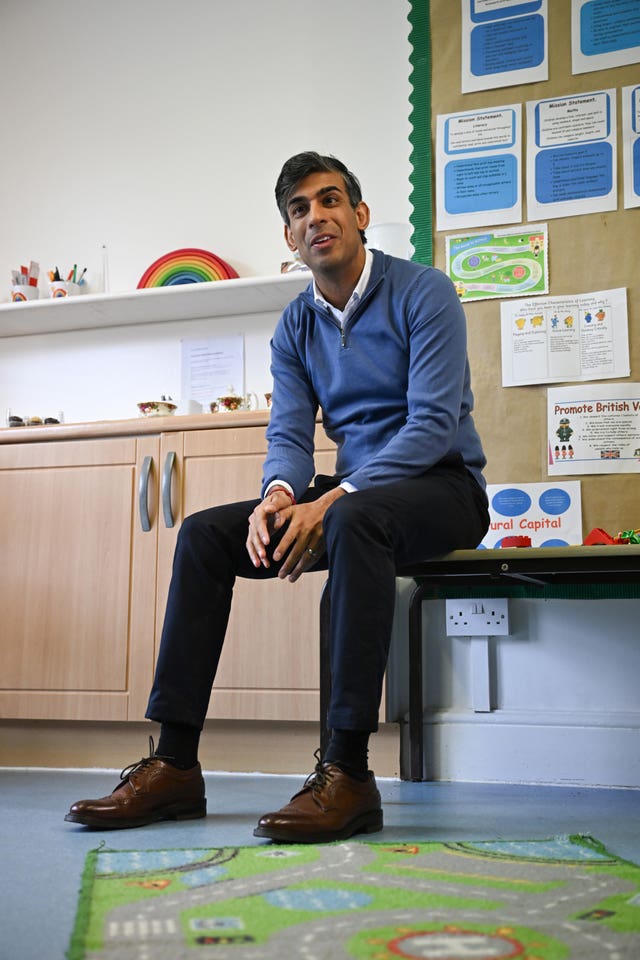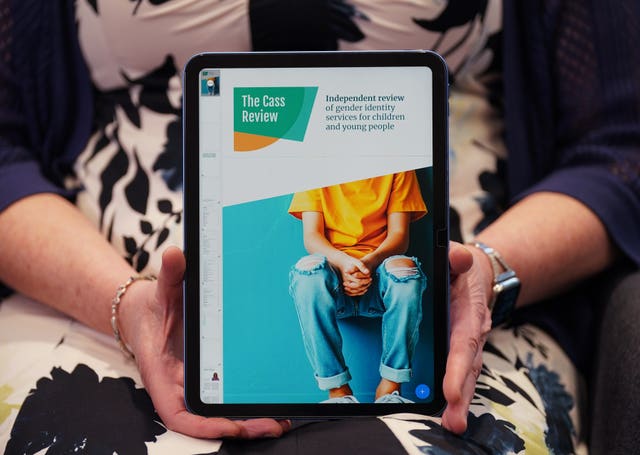
The findings of a major review that concluded that medical treatment in children’s gender care has been based on weak evidence has shone a spotlight on the need to “exercise extreme caution” in this area, the Prime Minister has said.
The Cass Review’s final report, published on Wednesday, said children have been let down by a lack of research and evidence on the use of puberty blockers and hormones, in a debate that it said has become exceptionally toxic.
The recommendations in the lengthy and long-awaited report have prompted NHS England, which had already stopped puberty blockers being given to under-16s, to announce a review into the use of hormones.
It has also written to local NHS leaders to ask that they pause first appointment offers at adult gender clinics to young people before their 18th birthday, as it also intends to carry out a major review of these services.
Dr Cass had, among her 32 recommendations, called for a “follow-through” service for 17 to 25-year-olds rather than this “vulnerable” group going straight into adult clinics, saying teenagers are “falling off a cliff edge” in their care when they reach 17.
Her report concluded that gender care is currently an area of “remarkably weak evidence” and young people have been caught up in a “stormy social discourse”.
Her report, first commissioned in 2020, called for gender services to operate “to the same standards” as other health services for children and young people, with “a holistic assessment” of people referred, including screening for neurodevelopmental conditions such as autism, and a mental health assessment.
She said that “for the majority of young people, a medical pathway may not be the best way” to address their needs.
The Children’s Society has called for the report to “mark a watershed moment” in fostering an environment “which places the wellbeing and safety of all children at its heart”, while the Royal College of Psychiatrists said all gender-questioning children must get “timely access to services that are holistic and respond to their individual needs”.
In a letter to Dr Cass, NHS England officials said a planned review of adult services will be brought forward and now “be undertaken in the context of a broader, systemic review of the operation and delivery of the GDCs (gender dysphoria clinics)”.
NHS England said it will provide details “very soon” but it is understood it will be a Cass-style review led by an independent expert.
Dr Cass welcomed the reaction to her recommendations, saying it was “good to hear that they are taking note”, adding that adult services are now predominantly seeing under-25s who have “significant complexity”, and deserve to have “the breadth of their needs” addressed.

She said children questioning their gender had been “marginalised from local services” as professionals anxious about what the appropriate course of action is “tended to bypass them straight to the Gender Identity Development Service (Gids), which could not cope due to a rise in numbers, with children then waiting for an inappropriate length of time”.
Dr Cass said: “I think it’s definitely the case that ideology on all sides has directed care, rather than care being directed by normal principles of paediatrics and mental health.
“I mean, certainly professionals are afraid to do the things that they would normally do in any other consultation with a young person, and that can’t be right.”
Mermaids, a transgender youth support charity, said the “current system is failing trans youth” and called for the NHS to “resist pressures from those who seek to limit access to healthcare” and instead “act urgently to provide gender services which are timely, supportive and holistic”.
All young people using gender services should be asked to be part of research, Dr Cass’s report said, in a bid to build a better picture of the long-term outcomes for patients.
Research by the University of York carried out alongside the report found evidence to be severely lacking on the impact of puberty blockers and hormone treatments, while the majority of clinical guidelines were found not to have followed international standards.
Dr Cass said it was “extremely disappointing” to find World Professional Association of Transgender Healthcare (WPATH) guidelines, which were taken as an industry standard and adopted very widely internationally, “were very, very poorly evidence-based”.
She said she believes the review has “certainly brought forward an international conversation” in an area which has been toxic and polarised.
While there was “no clear evidence” that social transition – such as changing names and pronouns – in childhood has any positive or negative mental health outcomes, the review said a “more cautious approach” should be taken for young children and a “separate pathway” for care, with families “prioritised for early discussion with a professional with relevant experience”.
Welcoming the review, Prime Minister Rishi Sunak told LBC Radio the conclusions “shine a spotlight” on the need to “exercise extreme caution” when it comes to gender care for children.

He said: “We care above all about the wellbeing of children and it’s clear that these things are not neutral acts, whether that’s social transitioning, any kind of medical intervention, we simply do not know the long-term effects of these things.
“And that’s why anyone involved in considering these issues, of course, has to treat people with sensitivity and compassion, but also have to be extremely cautious when it comes to taking any action.”
He said the report is “very supportive, I think, of the direction of travel we’ve taken, particularly in our schools where we’ve issued guidance recently so that teachers know how to deal with these things”.

Victims and safeguarding minister Laura Farris described the Cass Review as the “most comprehensive piece of work that’s ever been conducted into gender identity”.
NHS England has said it will “set out a full implementation plan following careful consideration of this final report and its recommendations”.
Two new regional hubs for children’s gender care opened earlier this month following the closure of the Gids at the Tavistock and Portman NHS Foundation Trust.
A spokesperson for the new London-based regional service said it would be “closely following NHS England guidelines informed by Dr Cass’s interim report”.
Labour’s shadow health and social care secretary Wes Streeting committed to working constructively with the Health Secretary on the report’s recommendations “to put children’s health and wellbeing above the political fray”.

Enjoy the convenience of having The Sunday Post delivered as a digital ePaper straight to your smartphone, tablet or computer.
Subscribe for only £5.49 a month and enjoy all the benefits of the printed paper as a digital replica.
Subscribe